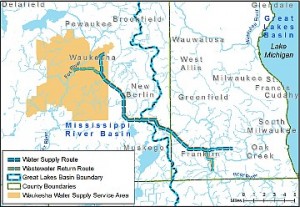Conference Offers Light — and Some Heat — on Gamut of Crucial Water Issues
To the general public, water is “an issue that’s obscure under normal circumstances,” Charles Franklin, director of the Marquette Law School Poll and professor of law and public policy, said at the end of the major conference on water issues this week (Sept. 7, 2016) at the Law School.
Franklin was commenting on the relatively mixed level of concern about water issues found in responses to several questions in the Law School Poll’s results from late August. For many people, you turn on the faucet, drinkable water comes out, and you’re likely to pretty much take this for granted.
But then, Franklin said, there are disasters that demand great attention and drive perceptions.
The Law School’s conference, “Public Policy and American Drinking Water,” drew a capacity audience to the Appellate Courtroom of Eckstein Hall. Both among the speakers and members of the audience, the room was filled with experts and leading activists on water issues – as well as interested members of the public, Marquette undergraduate and graduate students, and a dozen high school students.
And as Franklin suggested, the conference offered some controversial content of great public interest – namely, discussion of issues around lead in drinking water in Flint, Mich., Milwaukee, and elsewhere – and quite a bit of lower-key discussion around important water issues that don’t attract so much attention (the state of groundwater supplies, pricing and valuation of water, and the role of private ventures in water delivery systems).


